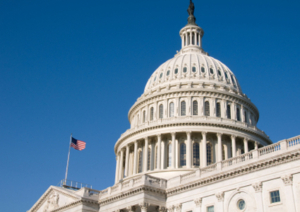Medicaid DSH Cut Delayed
Cuts in Medicaid DSH payments to hospitals will be delayed for another month after Congress passed, and the president signed, a continuing resolution to fund the federal government through December 20.
 A cut in federal Medicaid disproportionate share (Medicaid DSH) allotments to the states is mandated by the Affordable Care Act and has been delayed several times by Congress. If implemented, Medicaid DSH allotments to the states would be slashed $4 billion in FY 2020 and then $8 billion a year through FY 2025.
A cut in federal Medicaid disproportionate share (Medicaid DSH) allotments to the states is mandated by the Affordable Care Act and has been delayed several times by Congress. If implemented, Medicaid DSH allotments to the states would be slashed $4 billion in FY 2020 and then $8 billion a year through FY 2025.
Cuts in allotments to the states would result in reductions of Medicaid DSH payments to DSH-eligible hospitals.
Medicaid DSH payments are a vital tool for helping safety-net hospitals care for the low-income residents of their communities. All Pennsylvania safety-net hospitals receive such payments.
The current cut is only temporary and expires when the continuing resolution expires after December 20.
 The report includes:
The report includes: The Medicaid DSH delay was included in a continuing resolution that Congress passed to fund the federal government temporarily while legislators continue to negotiate an FY 2020 federal budget. The continuing resolution and the Medicaid DSH cut delay run through November 21.
The Medicaid DSH delay was included in a continuing resolution that Congress passed to fund the federal government temporarily while legislators continue to negotiate an FY 2020 federal budget. The continuing resolution and the Medicaid DSH cut delay run through November 21. Cuts in Medicaid disproportionate share hospital (Medicaid DSH) allotments to states were mandated by the Affordable Care Act based on the expectation that the law would greatly reduced the number of uninsured Americans. While this has been the case, the decline in the number of uninsured has not been as great as expected. For this reason, Congress has on several occasions delayed the required Medicaid DSH cut.
Cuts in Medicaid disproportionate share hospital (Medicaid DSH) allotments to states were mandated by the Affordable Care Act based on the expectation that the law would greatly reduced the number of uninsured Americans. While this has been the case, the decline in the number of uninsured has not been as great as expected. For this reason, Congress has on several occasions delayed the required Medicaid DSH cut. The Medicaid DSH cuts, mandated by the Affordable Care Act, have already been delayed three times by Congress and could be on their way to a fourth delay if the proposal advanced by the Health Subcommittee is endorsed by the Energy and Commerce Committee and works its way to the full House of Representatives, where such a proposal is thought to enjoy wide support.
The Medicaid DSH cuts, mandated by the Affordable Care Act, have already been delayed three times by Congress and could be on their way to a fourth delay if the proposal advanced by the Health Subcommittee is endorsed by the Energy and Commerce Committee and works its way to the full House of Representatives, where such a proposal is thought to enjoy wide support. The report consists of descriptions of the different types of supplemental Medicaid payments that states make to some providers, including:
The report consists of descriptions of the different types of supplemental Medicaid payments that states make to some providers, including: